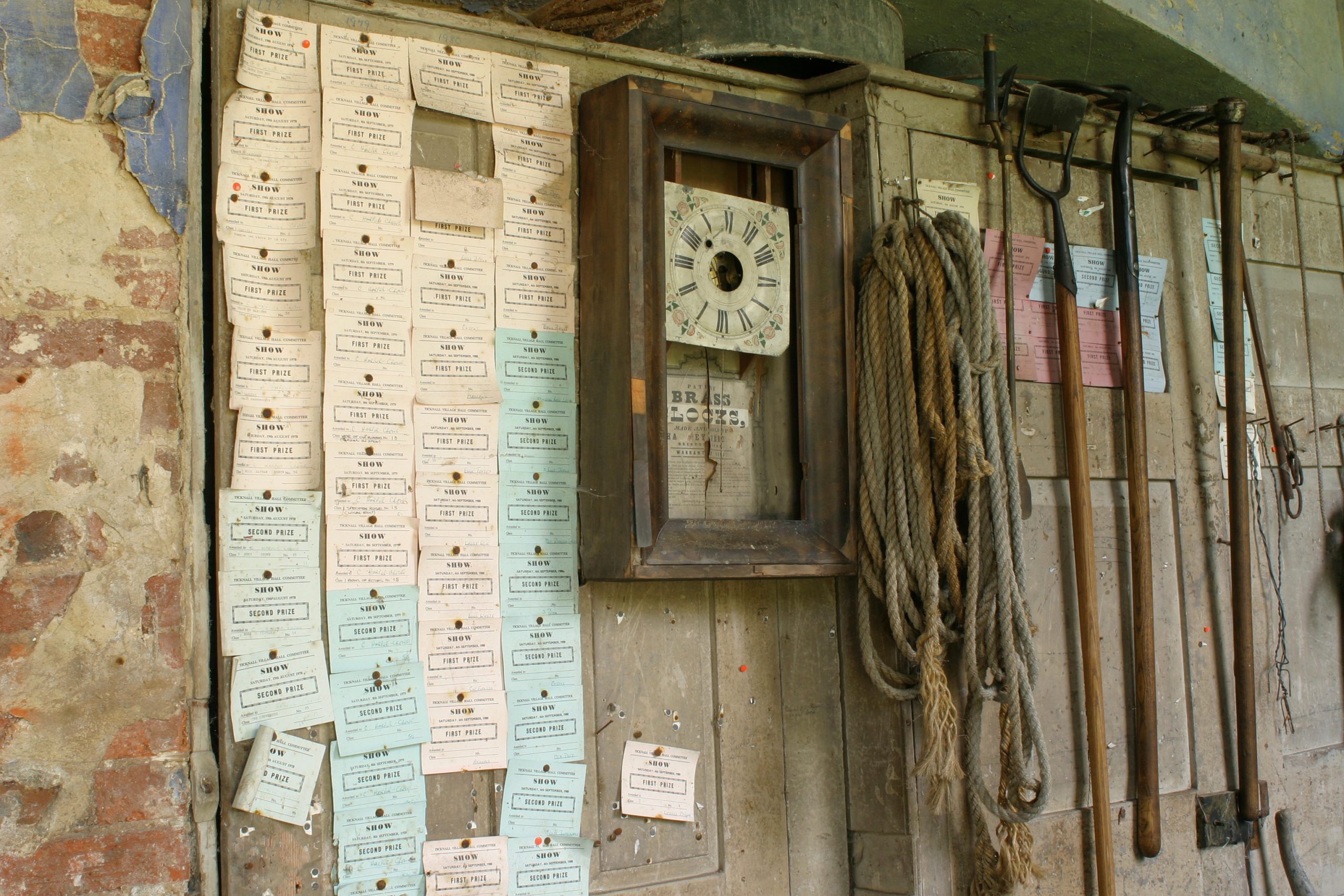Distinguishing Process Theology and Open Theism

I have been asked whether I accept open theism or process theology. The fact is that I accept extreme uncertainty about the way God relates to space and time, but that I think the process theologians come closer to the way the Bible story seems to read while traditional theism seems to come closer to the assertions Bible writers make about God.
In a way it’s much like my view on the Calvinist-Arminian divide. I think there is scripture on both sides, with the Bible writers moving forward without much concern for resolving the tension between sovereign control and the true free will of creatures, both of which are affirmed in scripture, I believe. God thus remains both outside of time and yet interactive within it; both in control of all that takes place, yet impacted by events chosen by people.
It seems to me that one cannot read the story of God’s action in this world in scripture without seeing the evidence of interaction. If nothing else, Jeremiah 18, to which I refer frequently in my Eschatology series, which explicitly says that God will speak in one way, yet if the people involved change their minds, God will change his. God repents.
Now I’ve heard plenty of ways of explaining this, but none of them feel “settled” to me, so I won’t use the word “heretic” anywhere on the spectrum. Well, I rarely use that word other than with intended humor in any case. I’ve been dubbed Henry the Heretic, (usually) in a friendly way!
Let me summarize these views on God’s relationship to time broadly:
- Calvinism – God is sovereign over all and predetermines all that takes place. There are, in fact, a spectrum of views on the details, but this is an intended (over)simplification.
- Arminianism – God foresees all, and predestines as he foresees. There are a variety again of ways of seeing the details. This view, along with Calvinism, preserves omniscience in the sense of God knowing every details of what will take place from start to finish, from the end to the beginning.
- Open Theism – God could know all of time, but has created space-time, and us in it, in such a way that he does not. In other words, he limits his own knowledge and therefore can interact with us. There are again quite a number of ways of expressing or explaining this relationship. I owe this one to a conversation with Dr. Richard Rice, author of The Openness of God (no longer in print, reprinted as God’s Foreknowledge and Man’s Freewill), but I am relaying the gist by memory, not quoting any of Dr. Rice’s work.
- Process Theology – God is inextricably linked with creation and is not so much in control as we might like to think. Free will is, as I understand it, an integral part of everything and God does, in fact respond. For a bit more detail I’d refer you to Bruce Epperly, Process Theology: Embracing Adventure with God, which I publish.
My personal position remains in the open theism camp, with a very strong sprinkling of “I don’t really know” thrown in. It’s just that for me those things short of open theism do not adequately express the view of God that the overarching Bible story expresses, while process theology seems to be a bridge too far for me. But as you can see by the fact that I cite a book I edited and published, not to mention requested from the author as a source on process theology, I hardly regard it as the dangerous heresy that many do.
In fact, one of the things I have become more and more convinced of as I work as a publisher is that people’s actions are not very directly related to their doctrines. I once would have thought that Calvinists would not be that involved in missions, because God has predestined everyone. Yet they carry out missions with vigor. I might have expected Arminians to be less likely than others to “blame God” for every little thing that happens, yet they do precisely that. Both Arminians and Calvinists will talk about their prayers changing the course of hurricanes, surely something at least as predetermined as a human life.
“Orthodox” theologians, by which in this one quoted instance I mean both Arminians and Calvinists, as they both assert full sovereignty, omnipotence, omniscience, and free will, doubt that process theologians will pray, and certainly, if they pray, will not expect God to act. Yes they do, as do open theists.
In fact, if we observed behavior, we would likely find ourselves dividing Christians very differently from the way we do with regard to doctrine. I hope, in this case, to have done some distinguishing without further division!


Henry, I’d like to address this summary statement: “It’s just that for me those things short of open theism do not adequately express the view of God that the overarching Bible story expresses, while process theology seems to be a bridge too far for me.”
One’s worldview determines one’s understanding of reality. Using the categories of philosophy, cosmology yields epistemology. The biblical worldview (shared with the Ancient Near East) prompts the psalmist to say that the sun has a course that it follows across the earth (Psa. 19). As for Joshua, the sun cannot “stand still” unless it moves. There is no need to adopt a geocentric universe just because the Bible supports it. This leads me to “the view of God that the overarching Bible story expresses.” We can say (in support of that statement) that God acts in history. But to say God does so in the manner the Bible suggests, e.a., carving words in stone, speaking face to face with Moses, walking in the garden, dividing the Sea of Reeds, etc., is to revert to an ancient worldview where the anthropomorphized gods acted like this.
We can be assured that God is not “out there somewhere” who occasionally drops into our world to take care of business. (Uri Gagarin was right: look anywhere in the universe and God will not be found there. That sounded the death knell to the old theistic worldview.) Process is built on the New Physics where everything in the universe is connected to everything else. Therefore, all things are related. That which holds it all together in the manner of Colossians 1.17: He himself is before all things, and in him all things hold together is in relationship with all there is. Through relationship, God acts, not from the great beyond, but from within, within the farthest star, and within you and me. Process people call God’s relational activity persuasive, not coercive. Interestingly, when God’s call of Moses at the burning bush is submitted to Process exegesis, we find one of the best examples of how God deals with humans–persuasion. Free will is fully in evidence with Moses’ reluctance, and God offers solid answers to his objections, including, “Well, since you are tongue-tied, Aaron can speak for you.” The literal versions of God acting anthropomorphically hide this very truth. The worldview of the ANE no longer suffices, and a new way of approaching the Bible and the God of the Bible is called for IMHO. Process is the bridge that takes me there, and it’s not all that far away.
When you state many of the problems I find myself in agreement. I am not, however, convinced that some form of open theism doesn’t draw in all necessary data points as we know them now. As we, or I, know them tomorrow? That remains to be seen!
I think it’s worth mentioning that the issue of foreseeability came up in last week’s Global Christian Perspectives (not sure what link will take you there) when we talked about prophecy.
Personally I’m attracted to Process, because I find myself agreeing a lot with process theologians once they get beyond talking about how process works.
My trouble is that I think what I heard someone say about Process is about true; it’s not a matter of loading a new app or a new piece of software, it’s a whole new philosophical operating system. I can’t quite seem to get my thinking into that operating system. My brain still wants to think of things, forces and motion rather than events.
I can’t really live with either predestination (which I think is formally impossible based on my knowledge of Physics even if you exclude any issue of agency) or dependable prediction, which I think has to amount to predestination. Both of these, to me, remove any possibility of human agency, and without agency, I can’t see (for instance) any concept of sin, or of just punishment, or of choice, or of merit, or of many other things which we take as givens being valid. Even grace, to me, would become meaningless in the context of predestination.
At the least, therefore, I have to go with something like open theism. But my snag there is that my peak unitive mystical experiences have a strong element of what’s been referred to as “the timeless moment” about them, which is bolstered by the fact that the passage of time is radically altered during them – and that has happened in both directions, so that a lot longer or a lot shorter time proves to have passed by the clock than subjectively. I would very much like, therefore, to see God as atemporal – but from a truly atemporal position, one should be able to view future as well as past time. (Mathematical Physics also frequently has difficulty with time – the equations do not tend to have an inbuilt arrow of time, which has to be added.)
I think I may just be stuck with Isaiah 55:8-9…
Here’s the YouTube:
https://youtu.be/2-HAtCYsGuM
I’m not sure how to respond to the rest as I am not that certain where I end up. I can get to different destinations on different days!
The main difference between open theism and process is that open theism does not see God as moved by any necessity, whereas process does. Open theism locates creation in God’s will, not God’s being or nature. God wills a world and interacts with it, but is, in himself or herself, a wholly self-sufficient, statically complete, non-relational being. Hence, the dilemma of open theism is how to deal with a God who is essentially a house divided against itself. The will of God calls for a world, the being of God is wholly indifferent to it. It is essentially contradictory to place the high God of classical theism in a relational framework, which is, unfortunately, exactly what open theism strives to do. The advantage of process is that this contradiction vanishes. Creation is located in the being or nature of God. God is by nature a creative social-relational being. Nothing external or beyond God makes God be that way. That is simply the nature of God. Hence, the will and being of God are in harmony in process. The contradiction vanishes.
Another major difference concerns considerable stereotyping on the part of open theists. One is that process theologians are against prayer and don’t pray. I have no ide where they got that idea. Many process theologians are ordained clergy, to start with. And there is much process literature on the centrality of prayer. Dialogue with God is key in process.
Another stereotype is that process cannot address mystical experience because mystical experience is essentially timeless. The problem here is that the Christian mystical literature is anything but Platonic or timeless or world-negating. In both Meister Eckhart and Jacob Boehme, the temporal-material world, the universe, is viewed as the body of God, creation being God’s own self-evolution from unconsciousness into consciousness.
Yet another stereotype is that process cannot deal with miraculous experiences. Well, exactly what are miracles anyway? Those, such as Boyd, who are fond of making this accusation fail to define “miracle” and neglect process literature on paranormal experiences. Offhand, I don’t know any theology more open to paranormal experiences than process. Whitehead’s principle of relativity, by which every entity is to some real degree incarnate, transmits its feelings into all others, is very reminiscent of a kind of telepathy through the entire universe, a telepathy existing on a far grandeur scale than that generally talked about in the literature on paranormal experiences. Also, these critics of process completely overlook the centrality of mystical experience, in process. God, in process, is omnipresent in the fullest and richest sense of teh term. All self-creativity, every moment, begins with a an influx of God’s feedings into ourselves, an empathic encounter with God. Subconsciously, we all being with a mystical experience. The “miraculous” experiences of God’s presence reported in the mystical literature are a raising into consciousness of a deeper level of operation in the natural order than we are ordinarily consciously aware of.